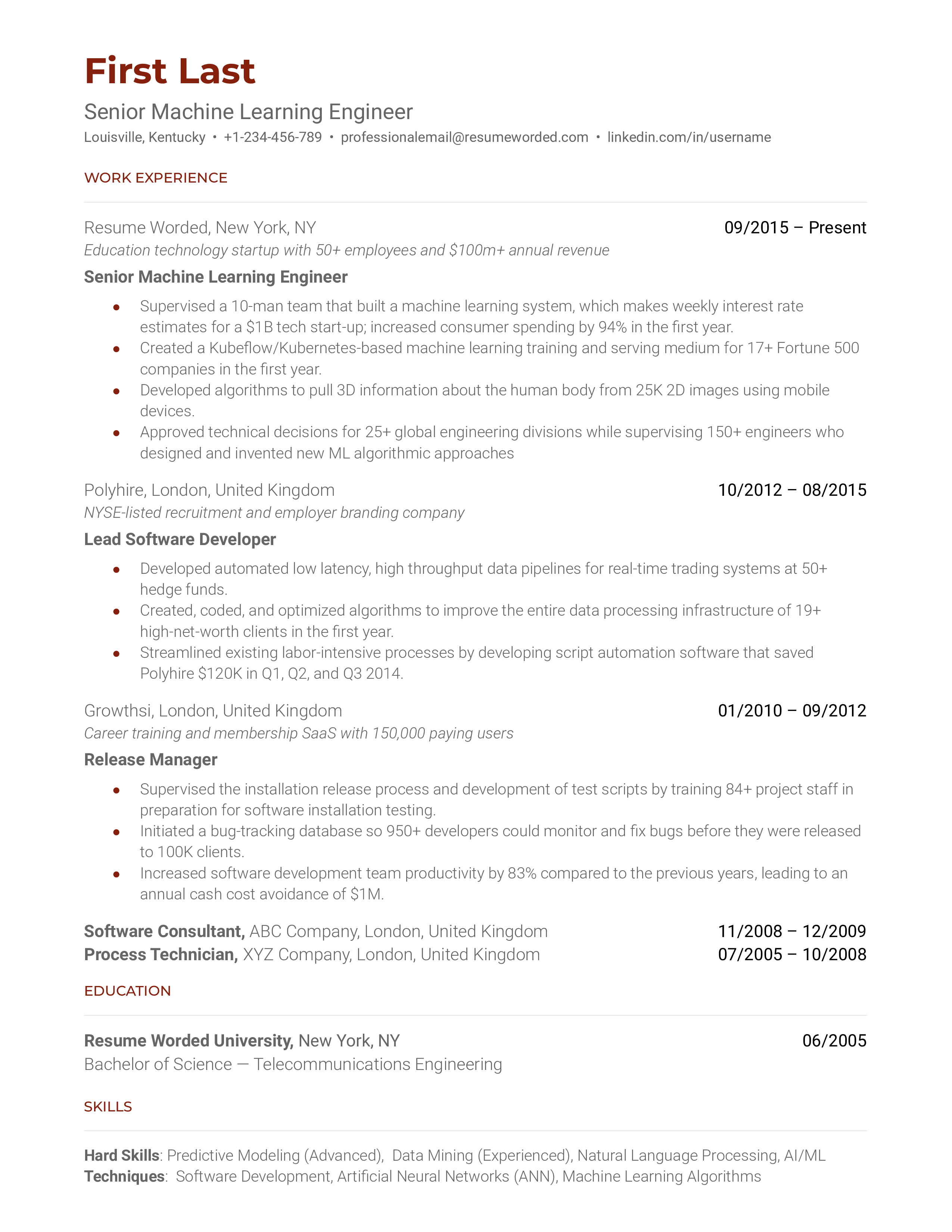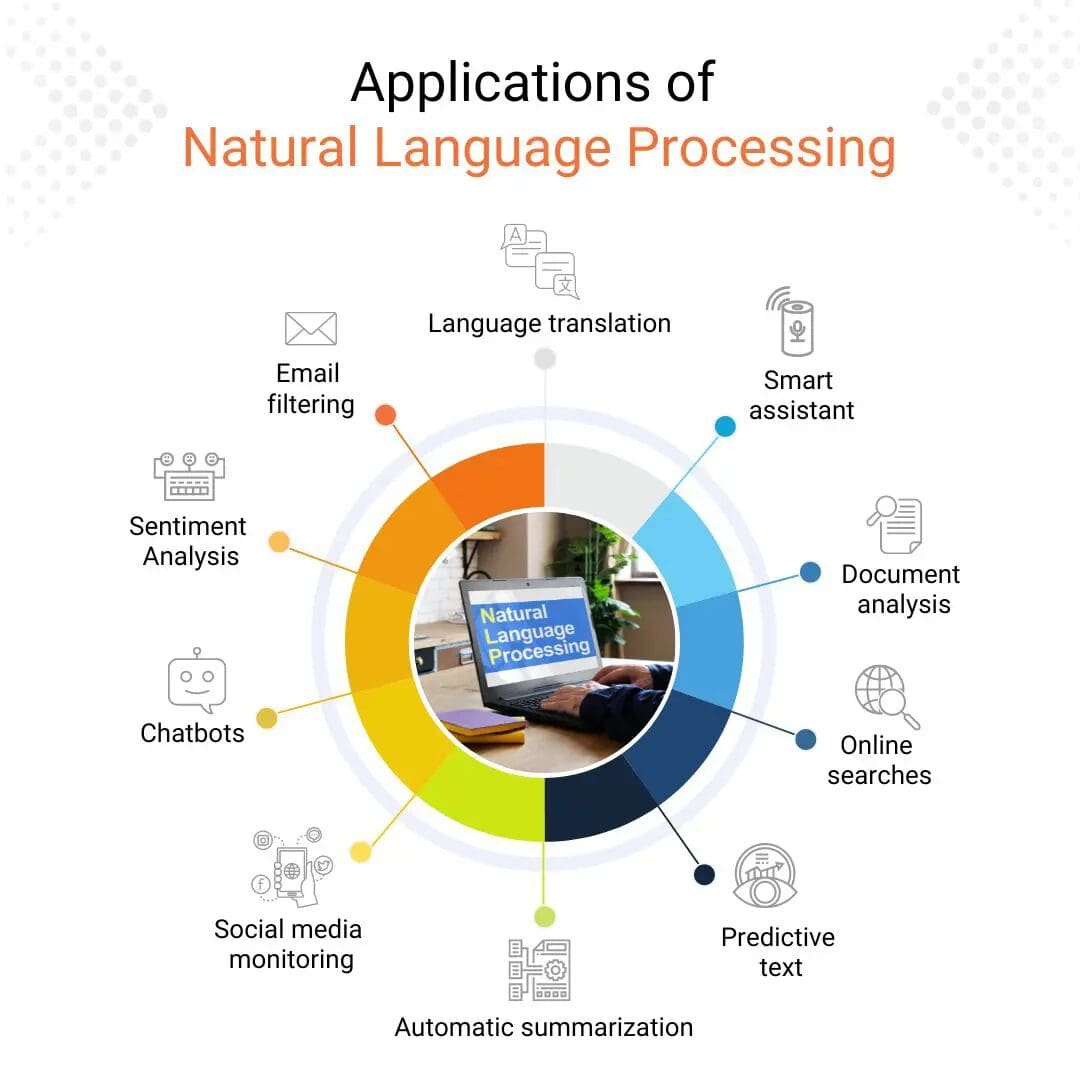All Categories
Featured
Table of Contents
- – Get This Report about Pursuing A Passion For M...
- – The Ultimate Guide To From Software Engineerin...
- – 5 Simple Techniques For Top Machine Learning ...
- – The Only Guide for Fundamentals To Become A M...
- – What Is The Best Route Of Becoming An Ai Eng...
- – 8 Easy Facts About Machine Learning Engineer...
My PhD was one of the most exhilirating and tiring time of my life. All of a sudden I was bordered by individuals that might fix difficult physics concerns, understood quantum technicians, and might develop fascinating experiments that got released in leading journals. I seemed like an imposter the entire time. Yet I fell in with an excellent group that urged me to discover things at my own speed, and I invested the next 7 years discovering a lots of things, the capstone of which was understanding/converting a molecular dynamics loss feature (including those shateringly learned analytic by-products) from FORTRAN to C++, and creating a slope descent routine straight out of Numerical Dishes.

I did a 3 year postdoc with little to no artificial intelligence, simply domain-specific biology things that I really did not discover interesting, and finally procured a job as a computer researcher at a nationwide laboratory. It was a good pivot- I was a principle detective, implying I might request my own grants, compose documents, etc, however really did not need to instruct courses.
Get This Report about Pursuing A Passion For Machine Learning
But I still didn't "get" artificial intelligence and wanted to function somewhere that did ML. I attempted to get a work as a SWE at google- experienced the ringer of all the difficult inquiries, and eventually obtained rejected at the last step (many thanks, Larry Page) and went to help a biotech for a year before I ultimately procured worked with at Google during the "post-IPO, Google-classic" period, around 2007.
When I got to Google I quickly checked out all the tasks doing ML and found that than ads, there truly wasn't a great deal. There was rephil, and SETI, and SmartASS, none of which seemed even from another location like the ML I had an interest in (deep semantic networks). So I went and concentrated on other stuff- learning the distributed technology below Borg and Colossus, and mastering the google3 stack and manufacturing atmospheres, mainly from an SRE perspective.

All that time I 'd invested in artificial intelligence and computer system framework ... went to creating systems that filled 80GB hash tables right into memory just so a mapmaker could compute a little part of some gradient for some variable. Sadly sibyl was in fact an awful system and I obtained kicked off the group for informing the leader the proper way to do DL was deep neural networks above efficiency computer equipment, not mapreduce on cheap linux cluster machines.
We had the data, the algorithms, and the calculate, all at as soon as. And even much better, you really did not need to be within google to take benefit of it (other than the large information, and that was changing quickly). I understand enough of the math, and the infra to finally be an ML Engineer.
They are under intense pressure to get outcomes a few percent much better than their partners, and afterwards once released, pivot to the next-next thing. Thats when I created one of my legislations: "The best ML versions are distilled from postdoc splits". I saw a couple of people break down and leave the market completely simply from dealing with super-stressful tasks where they did great work, but just reached parity with a rival.
Charlatan syndrome drove me to overcome my charlatan disorder, and in doing so, along the method, I learned what I was going after was not in fact what made me satisfied. I'm much a lot more completely satisfied puttering regarding utilizing 5-year-old ML technology like item detectors to enhance my microscope's capability to track tardigrades, than I am trying to come to be a popular researcher that uncloged the tough troubles of biology.
The Ultimate Guide To From Software Engineering To Machine Learning

I was interested in Equipment Discovering and AI in college, I never had the possibility or patience to go after that passion. Now, when the ML area expanded tremendously in 2023, with the most recent innovations in huge language designs, I have a horrible longing for the road not taken.
Partly this insane concept was additionally partly inspired by Scott Youthful's ted talk video entitled:. Scott chats about how he finished a computer scientific research level just by complying with MIT educational programs and self researching. After. which he was additionally able to land a beginning setting. I Googled around for self-taught ML Engineers.
At this point, I am unsure whether it is possible to be a self-taught ML designer. The only means to figure it out was to try to attempt it myself. Nonetheless, I am optimistic. I intend on taking courses from open-source courses offered online, such as MIT Open Courseware and Coursera.
5 Simple Techniques For Top Machine Learning Courses Online
To be clear, my goal below is not to build the following groundbreaking version. I just desire to see if I can get an interview for a junior-level Maker Understanding or Information Design job after this experiment. This is totally an experiment and I am not attempting to change into a function in ML.

I intend on journaling about it regular and recording everything that I research study. An additional please note: I am not starting from scrape. As I did my bachelor's degree in Computer Design, I understand a few of the basics required to draw this off. I have strong history expertise of single and multivariable calculus, direct algebra, and statistics, as I took these courses in college concerning a decade ago.
The Only Guide for Fundamentals To Become A Machine Learning Engineer
I am going to leave out numerous of these training courses. I am going to focus primarily on Artificial intelligence, Deep knowing, and Transformer Style. For the initial 4 weeks I am going to focus on completing Equipment Discovering Specialization from Andrew Ng. The goal is to speed run via these initial 3 training courses and get a strong understanding of the basics.
Now that you've seen the program referrals, right here's a fast guide for your understanding device learning trip. We'll touch on the prerequisites for many device discovering courses. Much more sophisticated courses will call for the adhering to knowledge prior to beginning: Straight AlgebraProbabilityCalculusProgrammingThese are the general parts of having the ability to understand how equipment discovering works under the hood.
The first course in this checklist, Artificial intelligence by Andrew Ng, contains refreshers on the majority of the mathematics you'll need, however it may be testing to find out equipment understanding and Linear Algebra if you haven't taken Linear Algebra before at the same time. If you need to clean up on the math required, examine out: I would certainly advise finding out Python given that the bulk of excellent ML courses utilize Python.
What Is The Best Route Of Becoming An Ai Engineer? for Beginners
Furthermore, another excellent Python resource is , which has numerous free Python lessons in their interactive browser environment. After discovering the requirement fundamentals, you can begin to actually comprehend just how the formulas function. There's a base collection of formulas in artificial intelligence that everybody ought to be familiar with and have experience making use of.

The training courses listed over contain basically every one of these with some variant. Recognizing exactly how these methods work and when to use them will be important when handling brand-new projects. After the basics, some more sophisticated strategies to learn would certainly be: EnsemblesBoostingNeural Networks and Deep LearningThis is simply a begin, however these algorithms are what you see in several of the most interesting maker learning options, and they're functional enhancements to your toolbox.
Knowing maker discovering online is challenging and extremely rewarding. It is very important to keep in mind that just seeing videos and taking tests doesn't mean you're actually learning the product. You'll find out a lot more if you have a side job you're working on that utilizes different information and has various other goals than the training course itself.
Google Scholar is constantly an excellent place to begin. Get in keyword phrases like "artificial intelligence" and "Twitter", or whatever else you want, and struck the little "Develop Alert" web link on the left to obtain emails. Make it a weekly practice to read those notifies, check with papers to see if their worth analysis, and afterwards devote to understanding what's going on.
8 Easy Facts About Machine Learning Engineer Shown
Artificial intelligence is extremely satisfying and exciting to discover and experiment with, and I hope you found a training course above that fits your own journey right into this interesting area. Artificial intelligence makes up one element of Data Scientific research. If you're also curious about learning more about stats, visualization, information evaluation, and much more be sure to take a look at the top data scientific research training courses, which is an overview that complies with a comparable format to this one.
Table of Contents
- – Get This Report about Pursuing A Passion For M...
- – The Ultimate Guide To From Software Engineerin...
- – 5 Simple Techniques For Top Machine Learning ...
- – The Only Guide for Fundamentals To Become A M...
- – What Is The Best Route Of Becoming An Ai Eng...
- – 8 Easy Facts About Machine Learning Engineer...
Latest Posts
Data Science Vs. Software Engineering Interviews – What’s The Difference?
How To Negotiate A Software Engineer Salary After A Faang Offer
How To Ace Faang Behavioral Interviews – A Complete Guide
More
Latest Posts
Data Science Vs. Software Engineering Interviews – What’s The Difference?
How To Negotiate A Software Engineer Salary After A Faang Offer
How To Ace Faang Behavioral Interviews – A Complete Guide